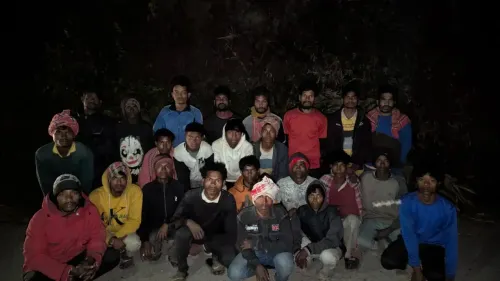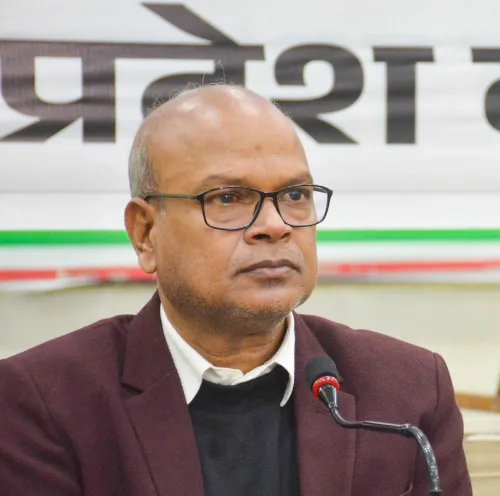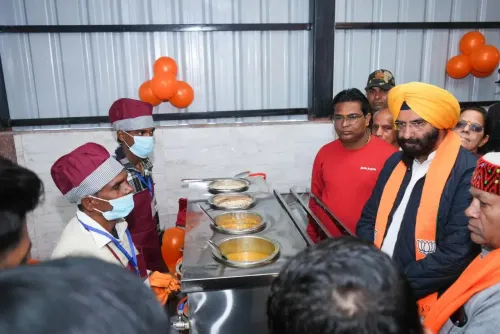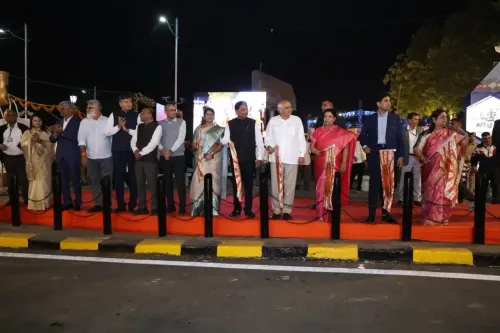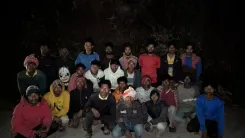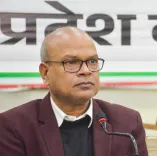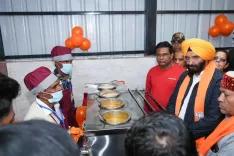Are Congress and AAP Exploiting the Sensitive Issue of Sacrilege?
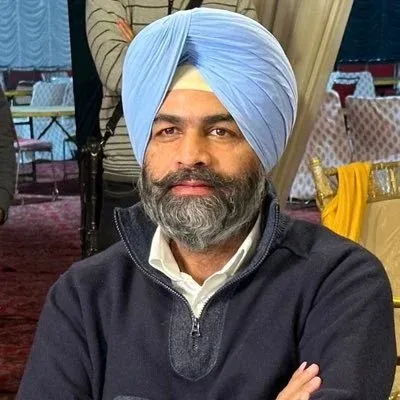
Synopsis
Key Takeaways
- SAD's Allegations: Congress and AAP are accused of politicizing sacrilege.
- Previous Inaction: Questions raised about the Congress government's lack of investigation.
- Bill Introduction: New legislation proposes strict penalties for sacrilege.
- Political Dynamics: Ongoing power struggles impact justice delivery.
- Public Consultation: Select committee to gather feedback on the Bill.
Chandigarh, July 15 (NationPress) The Shiromani Akali Dal (SAD) on Tuesday claimed that both the Congress and the Aam Aadmi Party (AAP) in Punjab are manipulating the delicate matter of the sacrilege of Guru Granth Sahib for their political gains. They challenged Leader of Opposition Partap Bajwa to explain why the previous Congress administration failed to investigate or penalize those responsible for this grave offense.
In response to Bajwa’s assertions made in the Vidhan Sabha, where he alleged that the AAP government did not file charges against former Chief Minister Parkash Singh Badal and Deputy Chief Minister Sukhbir Singh Badal, who was Home Minister during the sacrilege incidents of 2015, SAD Vice-President Parambans Romana criticized Bajwa for his inconsistent stance on this critical issue.
Romana reminded Bajwa of his past protests alongside Rahul Gandhi demanding the transfer of the sacrilege case to the CBI through a memorandum to the President. He stated, “Bajwa, however, shifted his position once the Congress took control of the state in 2017.”
He pointed out that Bajwa was silent when the Congress government reverted the sacrilege cases from the CBI back to the state without any lawful investigation.
Romana expressed that, similar to the AAP government today, the Congress government also convened special sessions of the Vidhan Sabha, ostensibly to politicize this matter.
Regarding the party’s perspective, Romana emphasized that former Chief Minister Parkash Singh Badal had referred the sacrilege cases to the CBI for the sake of justice. He asserted that both Congress and AAP have shown no genuine interest in delivering justice in these sacrilege cases and called out Bajwa for commending AAP's suspended legislator Kunwar Vijay Partap Singh.
“Records indicate that the Punjab and Haryana High Court criticized the investigation carried out by Kunwar Vijay, labeling it as a hazardous mix of politics, religion, and police management,” he added.
Following this ruling, Kunwar Vijay resigned from the police force and joined the Aam Aadmi Party. The Akali leader further claimed that the Congress party is the least suitable to discuss the sacrilege issue.
“This is the same party that assaulted Sri Darbar Sahib with tanks and mortars, and led to the destruction of Sri Akal Takht Sahib. They are also accountable for the massacre of countless Sikhs in Delhi and other regions,” Romana stated. He also noted that AAP legislator Naresh Yadav was convicted for his involvement in the sacrilege of the holy Quran in Malerkotla.
Instead of dismissing Yadav, AAP rewarded him with a party ticket in the latest Vidhan Sabha elections.
“The AAP government in Punjab has taken no action against the sacrilege perpetrators and has primarily focused on politicizing the issue,” he remarked.
Following three hours of heated debate involving accusations and counter-accusations, the Vidhan Sabha unanimously agreed to forward the emotionally charged Punjab Prevention of Offences Against Holy Scriptures Bill of 2025 to a select committee for stakeholder consultations.
At the suggestion of both treasury and opposition members, Speaker Kultar Singh Sandhwan mentioned that the select committee would solicit public feedback on the Bill and return with recommendations within six months.
Previously, the Chief Minister had suggested a timeline of four months. The Bill seeks to impose stringent penalties for sacrilege-related offenses, with a minimum sentence of ten years, extendable to life imprisonment, alongside fines ranging from Rs 5 lakh to Rs 10 lakh. The holy scriptures referenced in the Bill include Guru Granth Sahib and excerpts from the Bhagavad Gita, Quran, and Bible.


